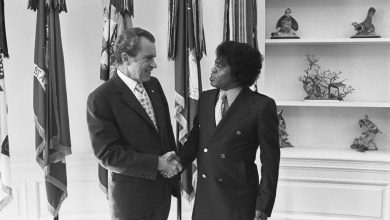How an Employer of Record Helps withInternational Tax Compliance and HiringOverseas

Hiring employees from different countries opens new growth opportunities for businesses. It allows companies to access global talent, operate in new markets, and increase their reach. But hiring overseas also brings legal, financial, and compliance responsibilities that are often difficult to manage alone. This is where an EOR (Employer of Record) plays a crucial role.
An EOR is a third-party service that acts as the legal employer on behalf of a business. It handles employment-related tasks such as contracts, payroll, benefits, and, most importantly, international tax compliance. Without local knowledge of laws and procedures, even experienced businesses can face challenges when working with an overseas entity. Hiring through an EOR helps solve this problem by ensuring all rules are followed from day one.
Understanding the Tax Compliance Challenge
Each country has its own rules for income taxes, social security, and employee benefits. Businesses that fail to meet these rules can face penalties, audits, and reputation damage. Complying with local tax laws becomes more complex when a company is hiring across multiple countries. Payroll taxes, employment classifications, and contribution rules vary widely, and staying up-to-date is hard without local experts.
For example, companies need to understand how tax deductions are calculated in different regions, what benefits are mandatory, and how to file documents on time. In some countries, employers are required to contribute to health funds or pension schemes, which are not always obvious to foreign companies. An EOR provides a global employment solution by taking care of these obligations for each location.
EOR vs. Professional Employer Organization (PEO)
While both EOR and Professional Employer Organization (PEO) services support employment, the legal structure is different. A PEO shares responsibility with the company but usually requires the company to set up a legal entity in the country where hiring is taking place. An EOR, on the other hand, becomes the legal employer. This means businesses don’t need to form an overseas entity to hire people in a new country.
This is especially helpful for small and mid-sized companies looking to grow quickly without setting up foreign branches. Using an EOR allows these businesses to hire legally in new markets without spending time and money on company registration.
How an EOR Supports International Hiring
When a business decides to hire a virtual employee in another country, several steps must be followed. These include writing a compliant contract, ensuring proper payroll setup, and enrolling the worker in the required tax and social programs. An EOR does all this under local laws.
It also becomes the agent of record, meaning it takes responsibility for tax filing, employee documentation, and government reporting. This greatly reduces the risk of non-compliance and ensures workers are treated fairly under local standards.
The EOR also helps with correct worker classification. For example, misclassifying a pay-as-you-go (PAYG) contractor as an employee, or vice versa, can cause fines. The EOR ensures such mistakes are avoided.
Key Use Cases and Benefits
One of the biggest advantages of using an EOR is speed. Businesses can start working with new hires within days rather than weeks or months. This is especially useful when testing new markets or working on short-term projects. A company can hire a virtual employee in a country, complete the assignment, and end the contract, all without establishing a physical presence.
Another important benefit is flexibility. Businesses can choose to work with full-time employees or PAYG contractors, depending on project needs. An EOR supports both structures while ensuring that all taxes and obligations are managed properly.
For companies aiming to become a global employer, an EOR enables smooth and legal operations across multiple countries at the same time. This makes it possible to grow without facing legal complications in each location.
Multiplier – Trusted Employer of Record With End-To-End Employment Support
Multiplier is an example of a platform that simplifies this entire process. Acting as an Employer of Record, Multiplier helps businesses hire, manage, and pay overseas workers legally and efficiently. It supports end-to-end employment tasks, including contracts, benefits, tax filings, and compliance, all through a single platform.
Whether hiring full-time employees or PAYG contractors, Multiplier ensures proper classification and filing, acting as the agent of record in each country. The platform is designed to help companies grow faster while meeting all local employment and international tax compliance requirements.
Multiplier’s solution is valuable for businesses that want to expand globally without managing the complexity of setting up an overseas entity. This makes it a true global employment solution for modern companies.
Conclusion
Hiring overseas is no longer just for large corporations. With tools like EOR services, even small businesses can become global employers. However, managing taxes, compliance, and legal risks is not easy when you’re unfamiliar with local systems. This is where an EOR becomes not just helpful, but necessary.
From ensuring smooth payroll processing to meeting international tax compliance standards, an Employer of Record handles the tough part of global hiring. It supports flexible employment models, avoids legal mistakes, and allows businesses to focus on growth, not red tape.
Solutions like Multiplier give companies the confidence to explore new markets, hire skilled workers from anywhere, and remain fully compliant. As business needs become more global, using an EOR is not just a shortcut, it’s a smarter, safer, and more efficient way to hire beyond borders.




